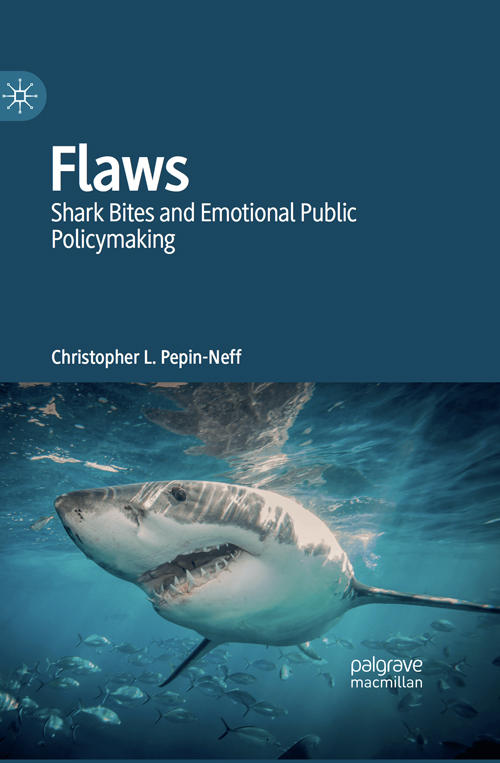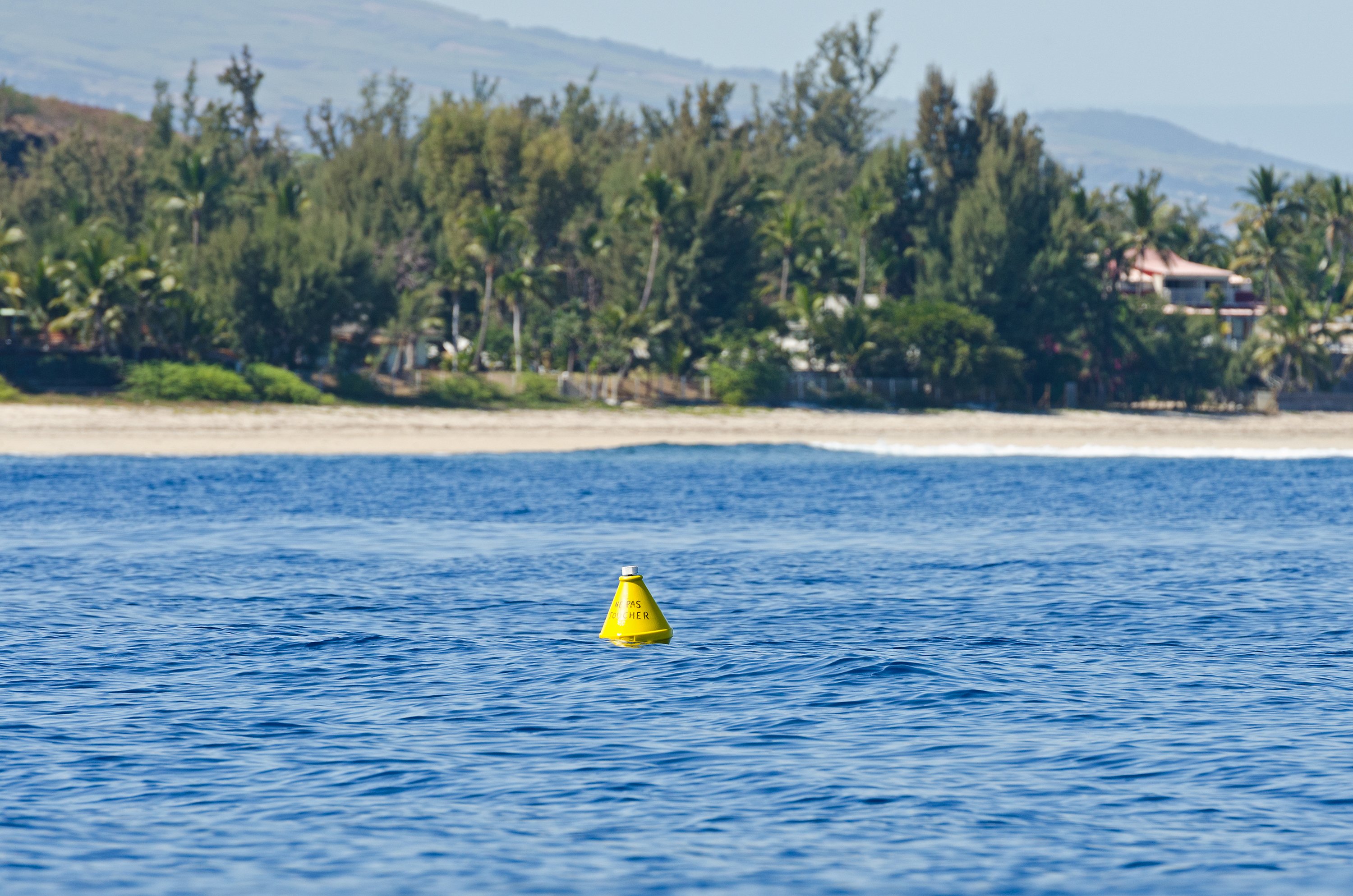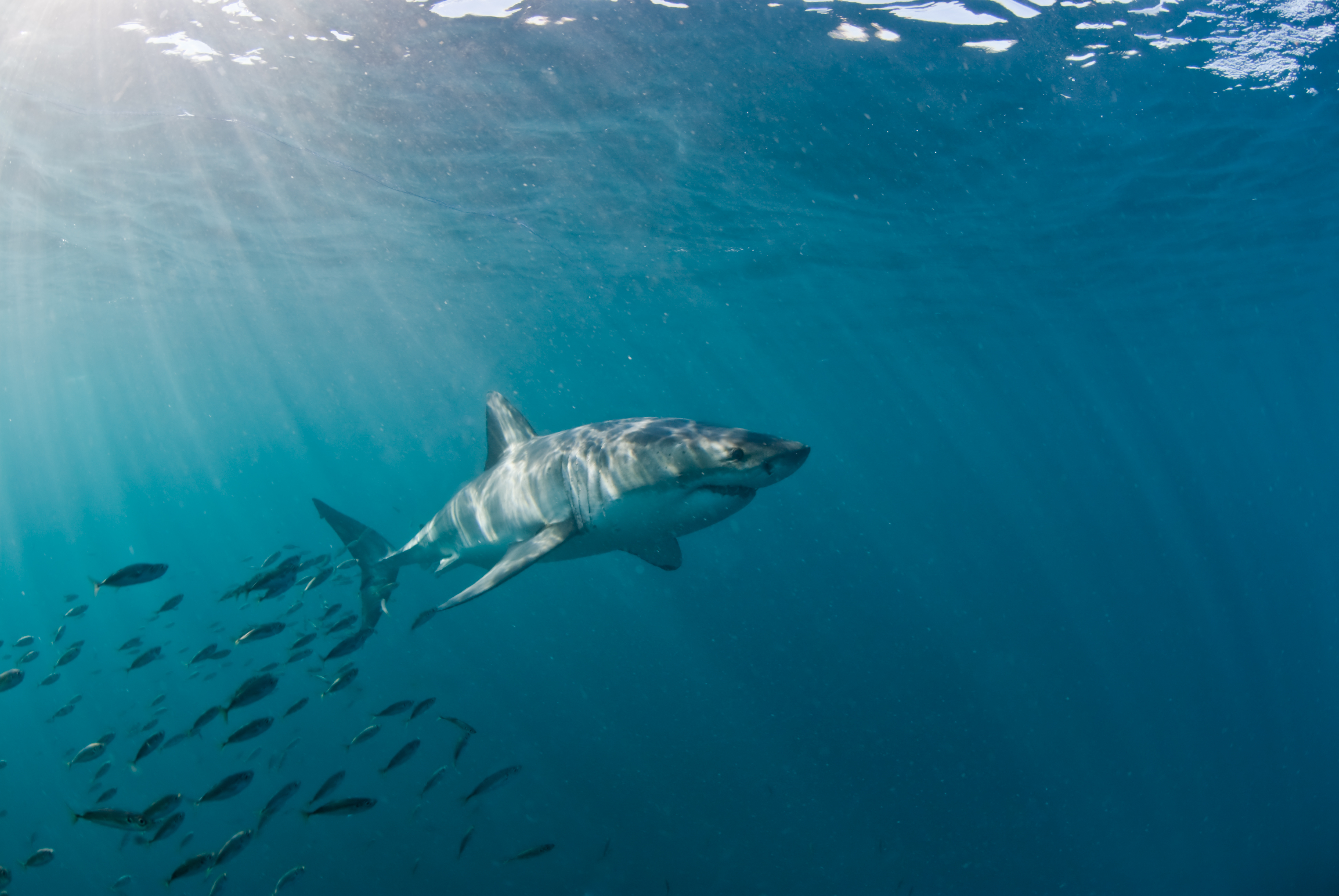FLAWS book launch: A Q&A with Christopher Pepin-Neff

The book cover for Flaws. Image © Palgrave Macmillan
FLAWS: Shark Bites and Emotional Public Policymaking was published in April by Palgrave Macmillan and launched at SEA LIFE Sydney Aquarium. The book is written by Dr. Christopher Pepin-Neff, a Senior Lecturer at the University of Sydney, and explores different policy responses to shark bite incidents around the world. We spoke to Dr. Pepin-Neff for some behind-the-scenes insights into what prompted his writing this particular book, and gained some understanding of what the current relevance is for the meaningful interrogation of a topic that is often inadequately and emotively discussed.

1. You are very active in communicating your research to a wide audience, published in the scientific peer-reviewed literature and hold an online presence. So, what prompted a book format dedicated to the emotive shark question?
This is a good question. I saw that there appeared to be this pattern where something highly emotional would happen, a politician would step in, and often a fake solution would be proposed. I call it the conflux of emotion, salience, policy entrepreneurship, and causal stories in the book. So I connected these types of highly emotional events to shark bites to see what the analysis looked like in Australia, the U.S. and South Africa. Fascinatingly, the exception to this is Cape Town, where a series of shark bite occurred, and local stakeholders and community members organised to do something that would help the public before politicians stepped in with knee-jerk responses. The solution for them was the Shark Spotters program that stands out in my book as one of the best programs in the world.

Photo © Joost van Uffelen | Shutterstock
2. In the course of your research, you must have encountered many different responses to shark bite incidents; is there any one particular direction that stands out as a hopeful case study?
Ironically, the worst case that I have come across is also the best case. It happened in Western Australia in 2014 where they had set out drum lines (baited hooks, buoyed to the surface) to cull white sharks. This was part of a state-wide effort to kill great white sharks. Following this, there was the largest pro-shark rally in history with thousands of people coming out to protect sharks. This was followed by a challenge to the Government by activists. They used the Environment Protection Agency in Western Australia (the EPA) that evaluated the program and found that: “There remains a high degree of scientific uncertainty about the impacts on the viability of the south-western white shark population.” So the program was stopped because of activism and science that showed uncertainty about what a cull would do to the Western Australia shark population. This was a victory for community engagement and science.
3. Is there anything particularly surprising that emerged from your collation of various case studies to publish FLAWS?
Absolutely. I was surprised how in each country – South Africa, the U.S. and Australia – there were shark bites that received little to no attention from the press and politicians. This showed that the issue isn’t always shark bites, but media attention (salience) that directs these events. In South Africa, there is a case of a black poacher who gets no attention because people believe that he deserved it. In Florida, there is a case of an older man who jumps in the water and is fatally bitten by a bull shark. Neither of these cases gains media attention because they don’t have the right story or the right participants. So what we see are shark bites that make the news when they can be packaged into consumable news by the media. Some cases count, others don’t – and the decision as to which is which, is based on clicks, or newspapers sold – not the lives lost.

An underwater image of a white shark. Photo © Fiona Ayerst | Shutterstock
4. How do you hope FLAWS might prompt more informed and measured policy-decisions with regards to sharks in the future?
I hope FLAWS provides evidence of how politicians and the media are the real sharks of this story. If we can begin to consider these incidents based on the objective events, the human impact, and the science, then we can change policymaking. But it requires a combination of the three. Science alone will not change policy. So I hope people see this story differently as the need to address the media sensationalism, political self-interest, and human-shark interactions. Then we have a chance to provide better public safety and balance this with shark conservation. I always say we are “in the way, not on the menu”, and if we can manage ways to get out of the way of sharks – whether that is through exclusion nets, more scientific tagging, or shark spotting/drones – then I am all for it. But we need to push back on the media and politicians who have little accountability.
FLAWS is available to order on Amazon and as an e-book directly from the Palgrave Macmillan website.
